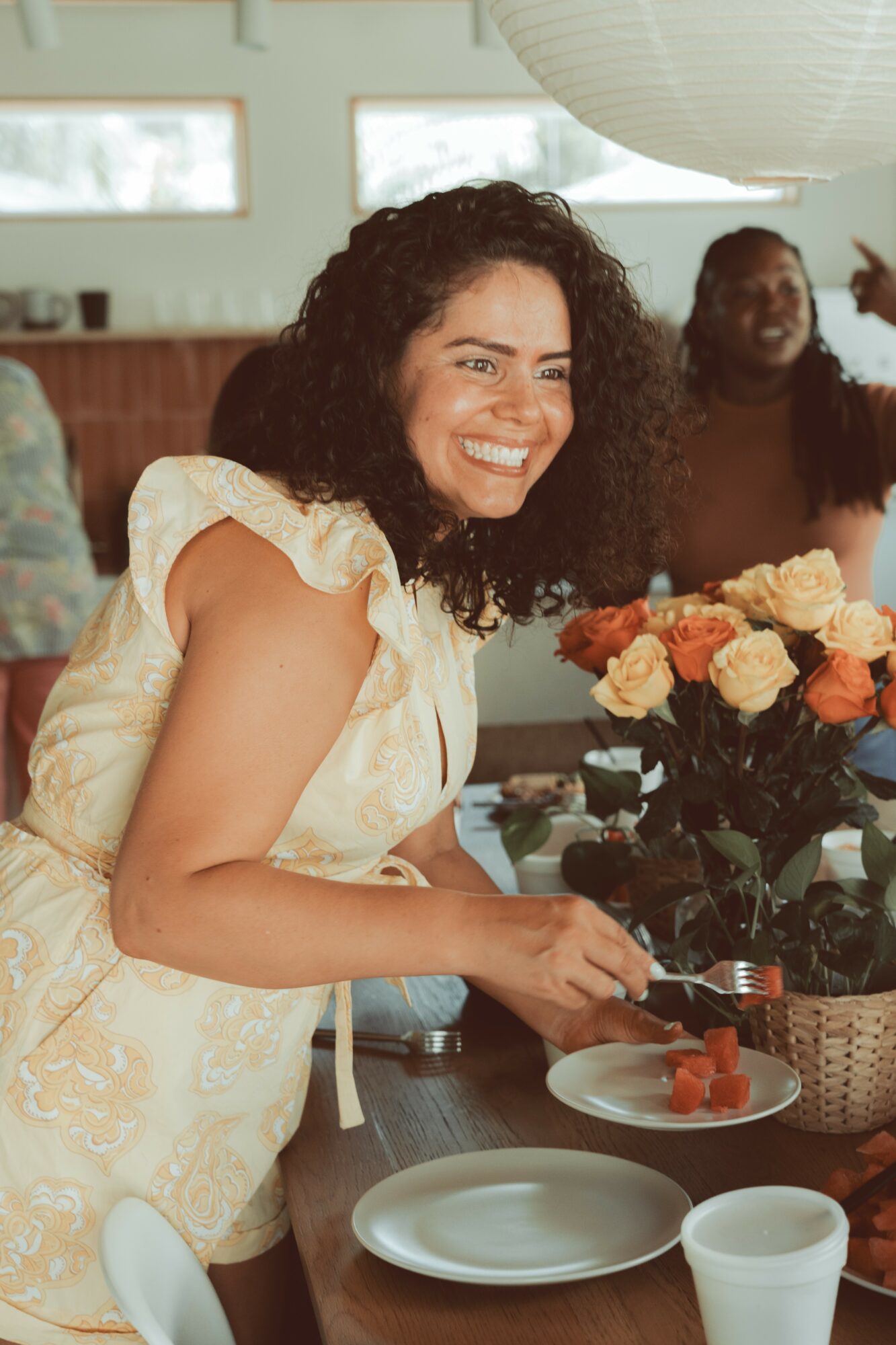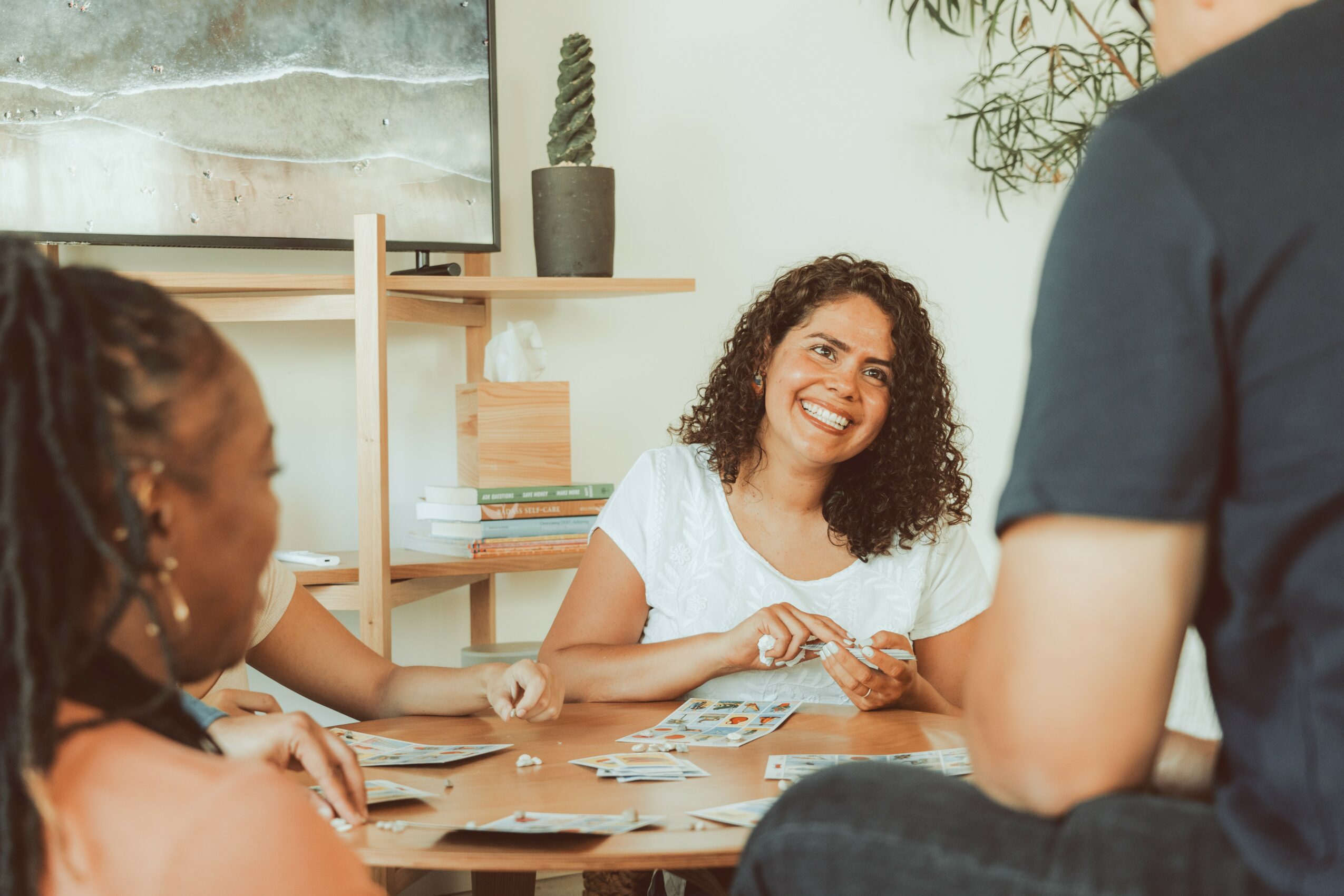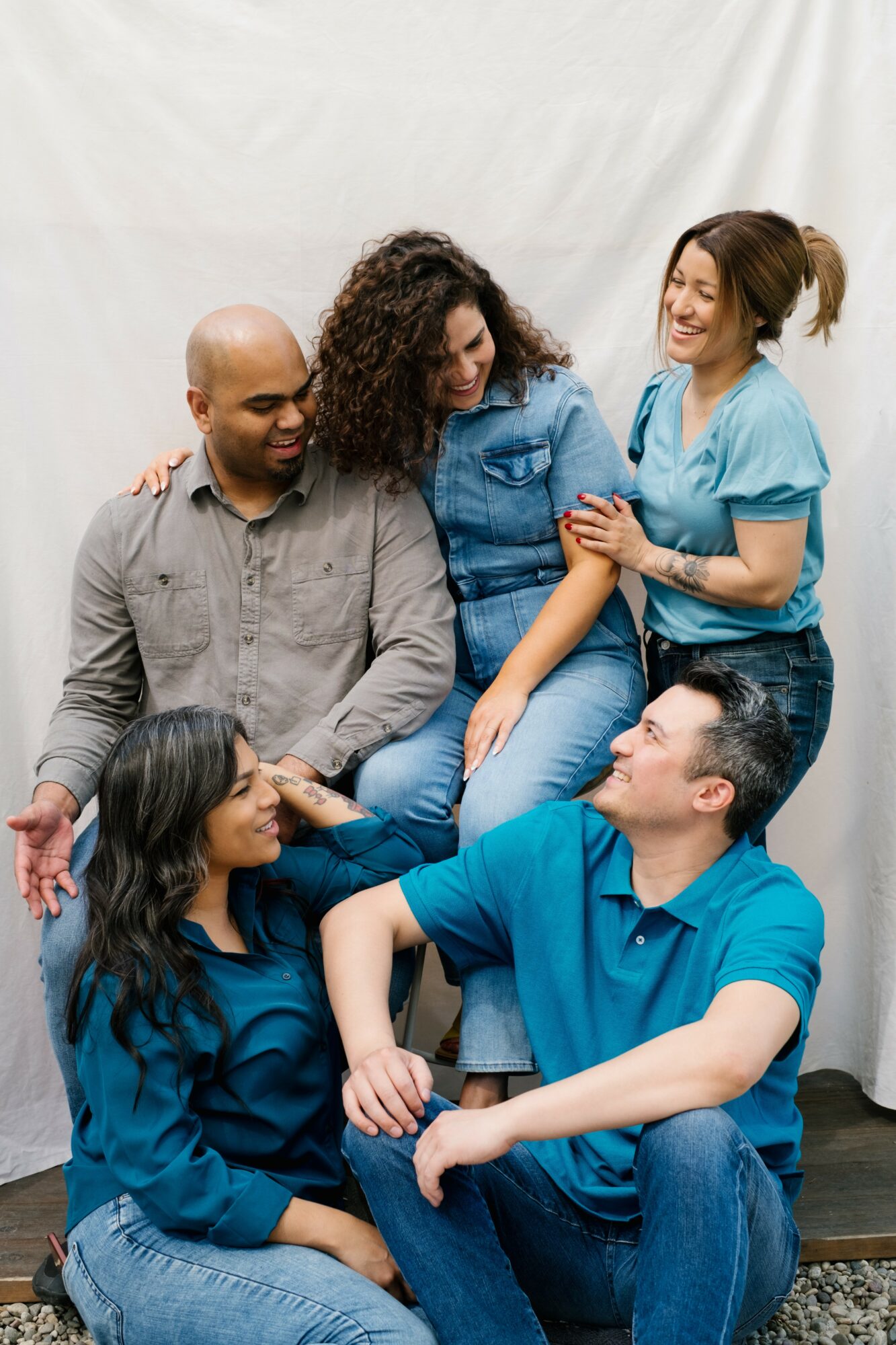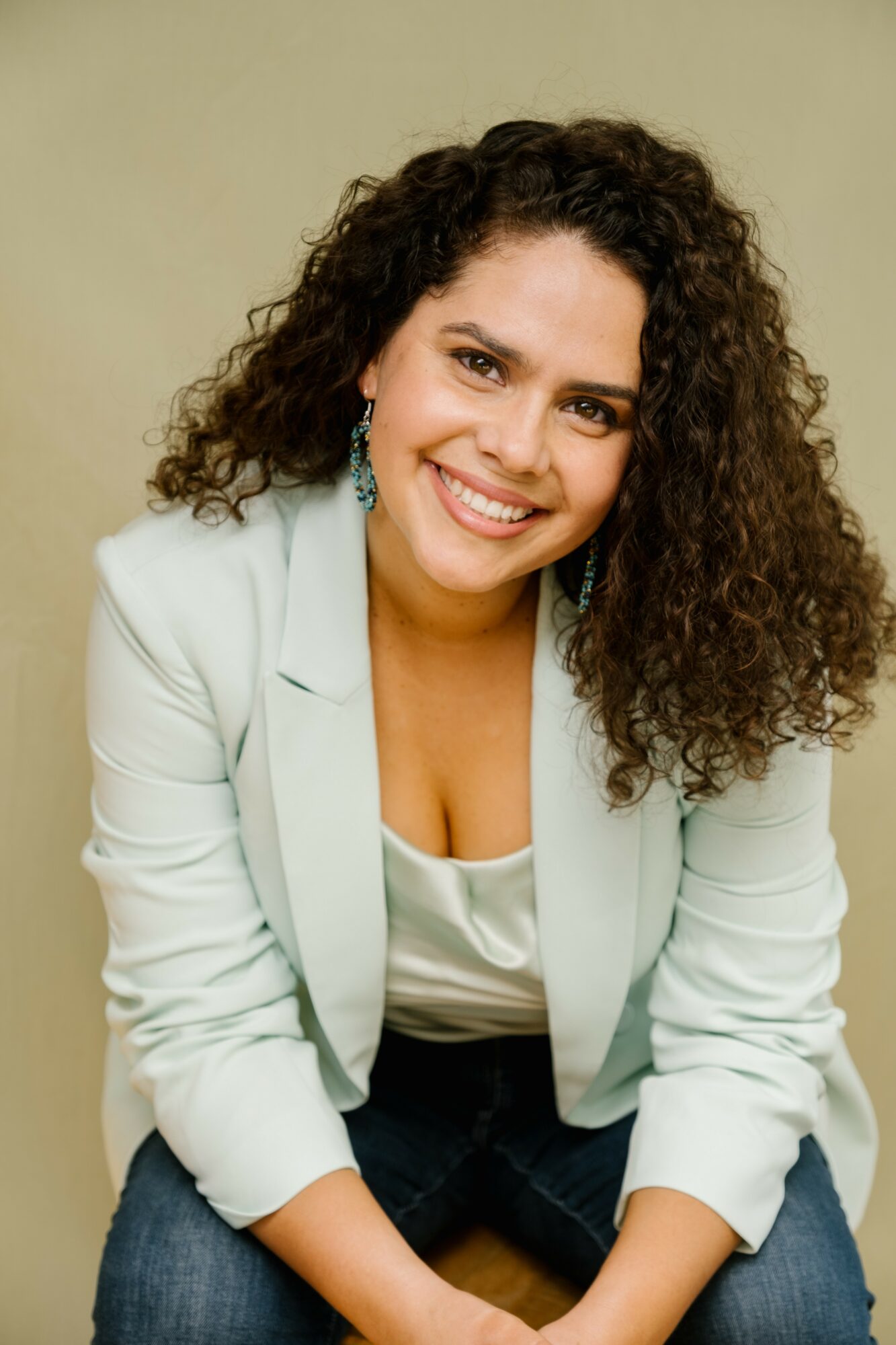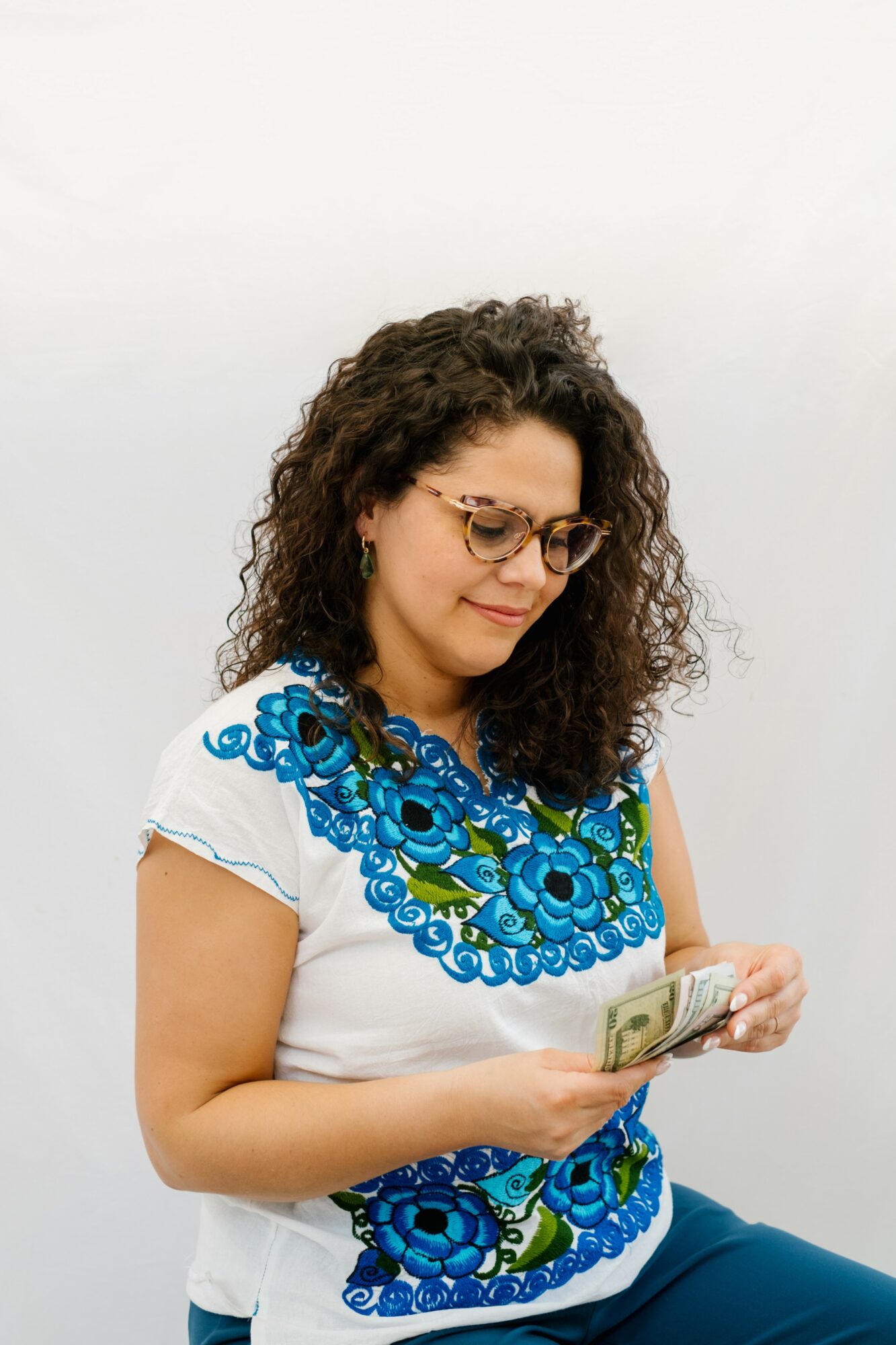

Rita-Soledad Fernández Paulino shared their story and experiences with us recently and you can find our conversation below.
Good morning Rita-Soledad, it’s such a great way to kick off the day – I think our readers will love hearing your stories, experiences and about how you think about life and work. Let’s jump right in? What are you being called to do now, that you may have been afraid of before?
Right now, I feel deeply called to take up more space and show up with greater visibility, even in a moment when my communities are navigating harmful immigration policies, attacks on trans rights, and legislation that threatens reproductive freedom. For years, I held back because I feared criticism and the vulnerability that comes with visibility.
Launching my podcast was a turning point for me. It was something I had dreamed about for over five years, but fear kept me from pressing “go.” Eventually, I realized that staying quiet would mean denying people the representation I knew they needed. As a queer Mexican-American, married to a Black Dominican-American, raising a trans daughter, and living with celiac disease, PTSD, and ADHD, I carry lived experiences that shape how I coach and how I advocate.
I care deeply about affordable healthcare, humane immigration policies, and legislation that protects the LGBTQ+ community. I’ve had an abortion, and I believe fiercely in the right of women and birthing people to make their own medical decisions. So when I launched my podcast, I knew it couldn’t just be about financial security—it had to be about building wealth in a way that reflects our values, honors our wellness, and challenges systemic barriers.
For me, money and self-care coaching is not neutral—it’s a way to model authentic representation, to create space for progressive first-gen wealth builders, and to show that you can pursue financial security without compromising your values.
Can you briefly introduce yourself and share what makes you or your brand unique?
I’m Rita-Soledad Fernández Paulino (she/they), a money and self-care coach and the CEO of Wealth Para Todos. My mission is simple but powerful: to make sure more Black, Indigenous, and people of color, women, and LGBTQ+ folks have financial plans that put them on track to become work-optional. I want us working because we want to, not because we have to.
What makes my approach unique is that I teach financial planning through a holistic lens. I created the D.I.V.E.R.S.E. Self-Care framework—an acronym for the seven types of self-care that keep us both wealthy and healthy. Alongside that, I guide clients through my framework of the 10 Stages of Financial Security. This framework breaks financial security down into clear, actionable steps so that first-gen wealth builders can see their progress and know what’s next.
Most of my clients are immigrants, children of immigrants, or just one generation removed from families who lived with financial insecurity. They dream of a life where money isn’t a constant source of stress but instead becomes a tool to support their wellness, their values, and their joy. That’s the work I do with Wealth Para Todos—helping people rewrite the role of money in their lives so that it sustains them, their families, and their communities.
Amazing, so let’s take a moment to go back in time. What part of you has served its purpose and must now be released?
The part of me that has served its purpose—and that I’ve chosen to release—is the part that once confused strength with hyper-independence and the refusal to be vulnerable. For much of my life, I believed that the only way to survive was to handle everything on my own. That belief carried me through some very difficult experiences, from working full-time while earning both my bachelor’s and master’s degrees to building a career in education where I poured myself into making sure my students thrived. That relentless self-reliance got me far, but it also kept me walled off.
Now, I know that true wellness—both personal and collective—comes from interdependence. I no longer see asking for help as weakness or believe that needing support makes me a burden. Reciprocal relationships, where I give from my capacity and also allow myself to receive, are what sustain me today.
Letting go of hyper-independence has allowed me to nurture community in a much deeper way. I’ve learned that I am worthy of support, that my vulnerability creates space for others to show up authentically too, and that we thrive most when we stop trying to figure it all out alone.
What did suffering teach you that success never could?
I was just 16 years old when my body first experienced inflammation so severe that I was bedridden and at times needed a wheelchair. For years, I cycled through different autoimmune diagnoses without clear answers. It wasn’t until my mid-thirties that I finally learned I had celiac disease—and that gluten had been the source of so much pain and physical limitation.
Celiac disease caused me to spend a lot of time alone, in bed, in pain. And when you’re in that place, it’s easy to spiral into loneliness, despair, and hopelessness. What got me through was learning to pay attention to my thoughts. I had to be intentional about nurturing faith—faith that things could get better, even when I felt scared, discouraged, and uncertain.
That’s what suffering taught me in a way success never could: the importance of cultivating belief in something you can’t yet see. It showed me how essential it is to direct my thoughts not toward worst-case scenarios, but toward the possibility of healing, growth, and creating something new.
My health struggles taught me to value reflection, to be mindful of my internal dialogue, and to recognize the power of faith and thought work in shaping the life I wanted. That lesson became the foundation of not only my own healing, but also the coaching I now share with others.
So a lot of these questions go deep, but if you are open to it, we’ve got a few more questions that we’d love to get your take on. What are the biggest lies your industry tells itself?
One of the biggest lies in the personal finance industry is the belief that financial security is simply a reflection of individual choices. Too often, the industry ignores the systemic factors that shape people’s ability to build wealth and use money to support their well-being.
For example, not everyone has access to an employer-sponsored retirement account like a 401(k) or a pension, and even when they do, not all employers offer a match. That alone creates huge disparities in people’s ability to retire with security. Many employers also don’t provide paid time off, meaning people with health challenges are forced to push through illness to keep a paycheck coming in. These are systemic issues, not individual failings.
The industry also tends to treat debt as a “spending problem,” when in reality, many people fall into debt because they lacked cash reserves in the moment they needed them. If you look at the MIT Living Wage Calculator, what becomes clear is that far more people have an income problem than a spending one. Wages are a reflection of what we as a society deem “fair,” and right now, that standard leaves millions of people—farm workers, caregivers, service workers—earning far less than a livable wage despite working incredibly hard.
Another lie is that wealth always comes from hard work. We know that isn’t true. There are countless people working long, grueling hours who don’t have access to affordable health care, childcare, or housing. Hard work alone doesn’t guarantee financial security—it takes equitable systems.
What I hope to see in my industry is less emphasis on “fix yourself” advice and more attention on dismantling the systemic barriers that keep people in cycles of financial insecurity—like medical debt that damages credit scores or student loans that balloon with interest. Real financial empowerment has to acknowledge both personal responsibility and systemic change.
Okay, so before we go, let’s tackle one more area. Are you tap dancing to work? Have you been that level of excited at any point in your career? If so, please tell us about those days.
I absolutely love my work as a money and self-care coach—I really do “tap dance” into it. The days I spend coaching clients are some of the most fulfilling of my life. There’s nothing more exciting than helping people close the gaps in their financial lives, set up sustainable systems, and start to feel confident about their money.
I love the questions I get to ask—questions that shift how clients think about their money beliefs and open up new possibilities for their future. I love guiding them to not only manage what they already have but to also create pathways for increasing their income and building long-term wealth.
Some of my favorite moments are when I see the spark in a client’s eyes as they realize, “That old money belief doesn’t serve me anymore,” or when they light up at the projections of what their retirement can look like if they stay consistent with their investment plan. Even more powerful is watching them transform from being overly critical of themselves to extending compassion, and learning to pursue financial security from a place of love and optimism rather than fear and shame.
Those are the days that make me grateful I chose this path—because I get to witness people stepping into financial security and wellness with confidence and joy.
Contact Info:
- Website: https://www.wealthparatodos.com
- Instagram: https://www.instagram.com/wealthparatodos/
- Linkedin: https://www.linkedin.com/in/wealthparatodos
- Other: Threads: https://www.threads.com/@wealthparatodos
Spotify: https://open.spotify.com/show/2pRM7xBL6e3BssTPoHsgM1?si=d47d329885fa4b89
Apple Podcasts: https://podcasts.apple.com/us/podcast/wealth-para-todos-financial-security-through-self-care/id1794898946
